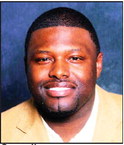The merits of gun buy-back programs

The merits of gun buy-back programs
news@theeveningtimes.com
Do gun buyback programs work? Experts generally say “no” — at least not the way you think it might.
Councilman Marco Mc-Clendon was asked in a West Memphis City Council meeting if gun buy back programs like the one he has proposed are effective.
The councilman could not cite a single study or instance.
“I don’t know,” said Mc-Clendon. “If there is anything we can do to show we are getting guns off the street, that is what I’d like to do.”
Critics of gun buyback plans say guns are turned in, just not the guns used in crimes on the street. As with anything in life you get what you pay for and buybacks are much less than the street value of firearms say many experts.
According to Michael Scott, director of the Center for Problem Oriented Policing at the Wisconsin School Of Law, criminals generally avoid police contact at all cost and steer clear of buyback programs even in a sanctuary setting promising no prosecution. He reported the funds for buy back programs are limited and that it was naive to believe enough of the right kinds of guns could be bought off the streets to ever make a difference.
There are 310 million guns in the country, almost enough to arm every man, woman and child in America.
“Gun buy back programs recover such a small percentage of guns that it’s not likely to make an impact,” said Scott.
Scott maintained gun turn in campaigns tend to attract people who are least likely to commit crimes and to retrieve guns that are least likely to be used in crimes.
“That means efforts end up with a lot of hunting rifles and old revolvers from someone’s attic trunk instead of automatic weapons from a criminal’s car trunk,” said Scott.
“The main drawback to gun buyback programs us that they tend to get junk guns that have been with the family for a long period of time,” said Fraternal Order of Police executive Director James Pasco.
“They are not catching forty-caliber semiautomatic handguns that are so prevalent in violent crime today.” Both supporters and critics of buyback plans agree the efforts accomplish one thing, but differ on the lasting impact. The events raise community awareness of violent crime as law enforcement officials splay out the weapons for public relations photo opportunities.
“Gun buybacks don’t do much harm,” said Scott.
“The major concern is that if local officials truly believe them to be an effective strategy, and run them on blind faith, doing that precludes them from exploring truly effect kinds of alternatives.”
Supporters say gun buy backs stir community involvement and save lives.
Experts say small city buybacks collect an average of 30 guns.
After a buyback at his church Cincinnati, Ohio pastor Ennis Tate said, “If we can save one life, if we can stop one act of violence, if we can get a gun out of one person’s hands, we have made progress in the fight to end violence in our communities.”
Some police departments insist these are public safety events and not antigun programs. It is felt, collecting firearms and keeping guns out of the hands of children prevent accidental shootings, and suicides.
A Murfreesboro, Tennessee
gun buy back netted
20 guns for $25 Kroger cards. The police there said gun buybacks reduce gun theft.
“There is no way this gun can fall into the hands of a criminal,” said Major.
Clyde Adkison with the Murfreesboro police. “If we get one gun it is worth it.”


By John Rech


Share